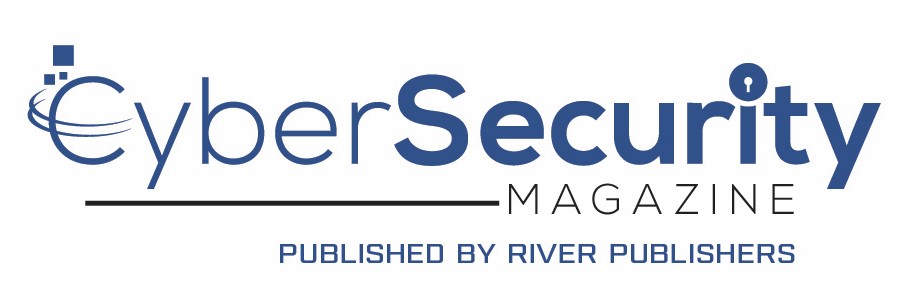PMRExpo 2023: Unveiling the Future of Secure Communications in Europe – 5G, Cybersecurity, and More in Focus!
PMRExpo 2023 – the leading European trade fair for Secure Communications will start in Cologne on 28 November. PMRExpo has been taking place since 2000, in 2009 for the first time in the halls of Koelnmesse. Initiator and conceptual carrier of PMRExpo is the Bundesverband Professioneller Mobilfunk (PMeV). In an interview with GIT, PMeV chairman of the board Bernhard Klinger and PMeV managing director Michael Rosenzweig provide insight into what guests of PMRExpo 2023 can expect, for which target groups a visit is recommended and which current trends characterise mission- and business-critical Secure Communications.
Mr Klinger, Mr Rosenzweig, PMRExpo is once again taking place in Cologne from 28 to 30 November 2023 – as the leading European trade fair for Secure Communications. Please tell our readers a little about what they can expect to see.
Michael Rosenzweig: At the three-day PMRExpo 2023, the focus is on innovations, solutions and applications from the field of mission- and business-critical mobile communication, which has to date primarily been used by authorities and organizations with security tasks (BOS), in the field of critical infrastructures (KRITIS) and by companies. The trade fair presents the important and current themes of the industry. These move in the field of tension between narrow and broadband networks, 5G campus solutions, the future of control centres and cyber security. Exhibitors from around the world will present innovations, new products and solutions, data applications and software applications. Especially topical here is the interconnectivity of narrow and broadband networks as well as the setting up of private broadband networks mostly operated independently by users, which have increased with enormous velocity in the standards LTE and especially 5G.
Which trends will define the trade fair – what challenges do you think decision makers and users will face in future?
Bernhard Klinger: The industry for mission- and business-critical Secure Communications is facing decisive challenges, which will also characterise PMRExpo 2023. For example, the migration of narrow band technologies such as TETRA to broadband communication networks. This challenge must be faced equally by BOS, KRITIS and companies. German BOS require their own dedicated broadband network in order to keep up with the exceedingly rapid developments of the digital world and to also be able to ensure inner security in future with the help of high-availability and secure means of communication. In order to secure the successive transition to broadband, however, narrow band frequencies cannot be prematurely abandoned. In addition, a uniform activation of the control centres with the broadband network is also a necessity for the national, uniform use of the speech, data and video services of the BOS.
Frequencies for dedicated broadband networks are available for companies in Germany. They can thus set up their own broadband networks like, for example, 5G campus networks. This technology of the future, which is of enormous significance for strengthening the international competitiveness of the German economy, must, however, be used by even more companies if the German economy is not to be left behind in digitization in international competition. Here too there is a big challenge that will be an
important theme at the most important leading trade fair for mission- and business-critical Secure Communications.
Digitisation and technology changes are surely concerns of many companies that work with professional, mobile communications solutions. What do you think is state of the art now – what has been achieved, where is development still necessary?
Bernhard Klinger: With advancing digitisation, software applications will rapidly increase in significance and data in value. This creates new possibilities for companies from all sectors as well as authorities. At the same time, the necessity for secure and highly-available communications solutions increases as a result. A 5G broadband network is the basic prerequisite for many new digital technologies and applications. It must be readily available for the digitisation of the economy. Especially also for small and medium-sized companies, PMRExpo offers information on questions such as: what can 5G do? What benefits does a company have from 5G? It is especially the small and medium-sized companies that still experience difficulties in undertaking a 5G project in the early phases, although this is of enormous importance for their competitiveness. Due to this uncertainty, these companies often only take the initiative when state funding is possible. We consider nationally uniform financial flanking for the establishing of 5G campus networks, especially for German medium-sized companies, to be absolutely necessary.
Especially for the theme of cyber security and 5G in the context of Secure Communications, there will also be lectures at an accompanying summit. Which aspects will be especially focused on there?
Bernhard Klinger: The focus will be on the high availability of communications and cyber security for KRITIS, industry and the economy. It is being demonstrated that secure and reliable communication is of enormous importance not only for the previous classic PMR user industries, but will also be indispensable in future for all industries and branches of the economy in the context of digitisation with 5G. Protection against cyber attacks will also play an important role in the programme. In times of increasing cyber attacks and real, physical threats, it is more than ever of key importance to give thought to the security and protection of communications networks. Companies require effective cyber security mechanisms to protect themselves from attacks. The resilience of companies and KRITIS must be improved. As already mentioned, it will also be shown, however, why narrow band networks and the corresponding frequencies must remain available, until at least 2035, in order to be able to design the transition to broadband as smooth as possible.

